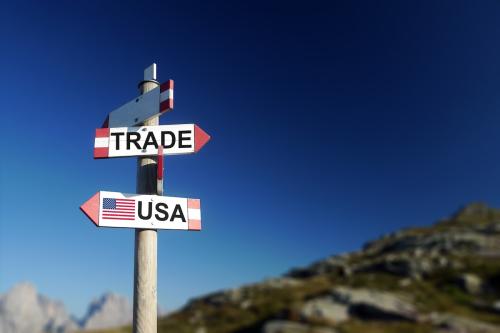Editor’s note: In an
interview with ABC Lateline‘s Tony Jones
, Martin Indyk discusses the challenges that President Obama faces in dealing with the chaos in Syria and the rise of Iran. Read an excerpt below.
Tony Jones: Here is our guest, and as I said earlier, Martin Indyk gave a wide-ranging speech at the Lowy Institute today on U.S. President Obama’s emerging global strategy and the many challenges he faces.
Second-term presidents look to their legacy, and with the U.S. worn out by failures in the Middle East, the two longest wars in its history, Obama’s main game has been the pivot to Asia, in which Australia has a key role to play.
But while pivoting away from the Middle East, the President must still face the rise of Iran and its nuclear weapons program and the prospect that Syria may be degenerating into a failed state. And again, in Syria, the question of weapons of mass destruction, chemical weapons in this case, could be the game changer.
So what lies ahead for the U.S. President?
Martin Indyk is the vice president and director of the foreign policy program at the Brookings Institution in Washington, D.C. He’s a former U.S. ambassador to Israel and he joins us now.
Thanks for being here.
Martin Indyk: Nice to see you again, Tony. Thank you.
Jones: Now, you began your speech today by saying that we’re in a plastic moment in international affairs. What do you mean by that?
Indyk: Well, there is I think an emerging global order in which rising powers, particularly China and India in this part of the world, are pushing for a role on the international stage and it’s a moment in which there’s a certain malleability to the shaping of that order in which I think the United States has a critical role to play, just as it did after the Second World War, in supporting a liberal international order, the kind of order that the United States and Australia share in common with so much of the Western world. And that’s the challenge for President Obama, because in his next four years, no longer needing to worry about getting re-elected – he cannot run again – he has a chance to bend history in the direction of a more peaceful, more prosperous, more liberal international order.
Jones: Yeah, OK. So you describe Obama’s pivot to Asia as the closest thing we may ever see to an Obama Doctrine. It has very big implications for Australia. How radical a shift is it in reality?
Indyk: I think it’s more of a recognition that for 10 years, the previous 10 years, the previous decade, the United States has been preoccupied with the war on terrorism and bogged down in these two wars in Iraq and Afghanistan and basically has taken its eye off the ball. A lot of other things are going on in other parts of the world, particularly in the Asia Pacific region. And the United States simply wasn’t paying attention; it was basically absent from the arena. Now it is paying attention and the President’s pivot, as he calls it, to the Asia Pacific region is an indication of a strategic shift because of the recognition of the challenges and opportunities that lie here in this part of the world for the United States.
The Brookings Institution is committed to quality, independence, and impact.
We are supported by a diverse array of funders. In line with our values and policies, each Brookings publication represents the sole views of its author(s).



Commentary
Obama’s Foreign Policy in his Second Term
May 2, 2013